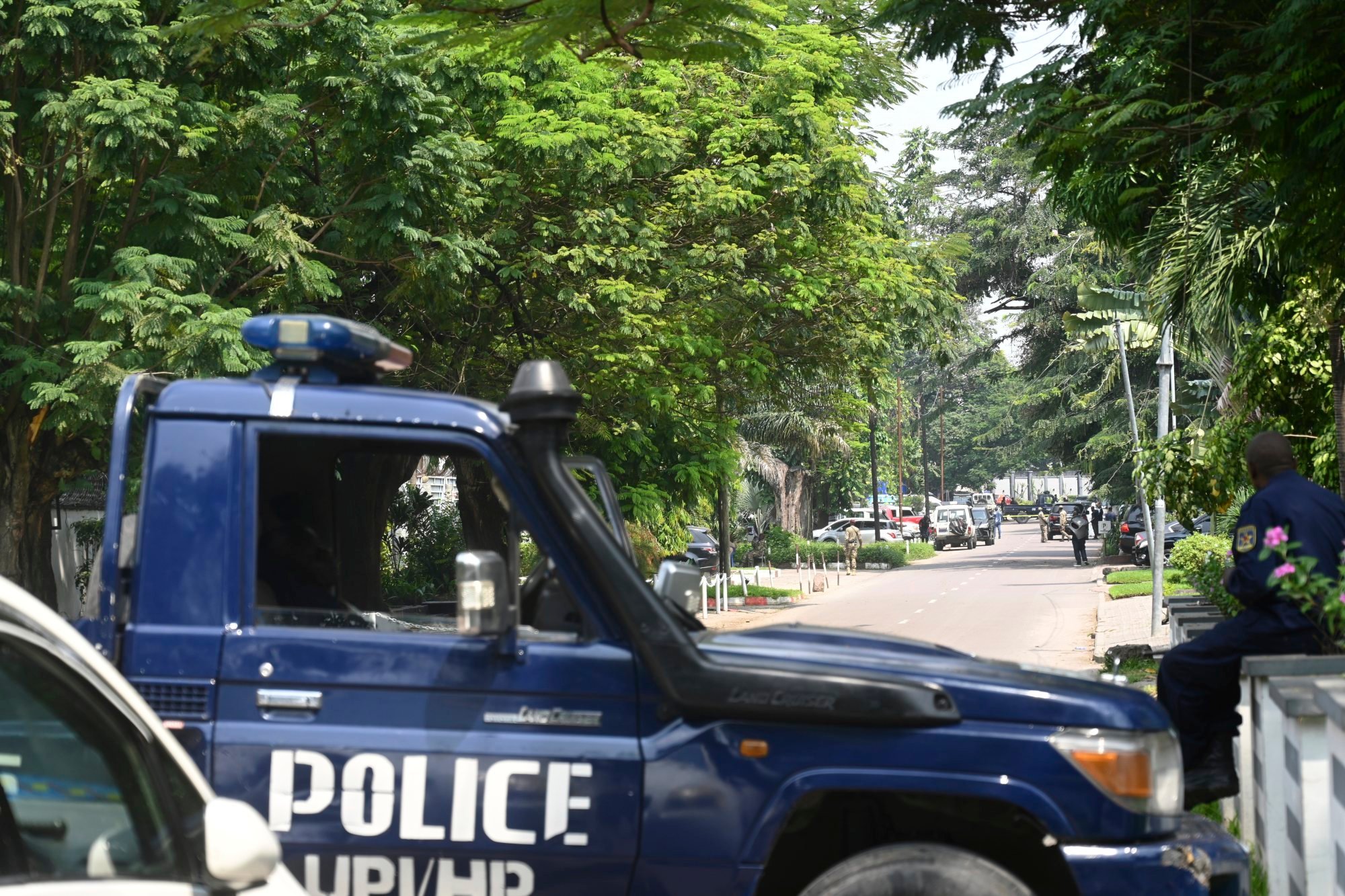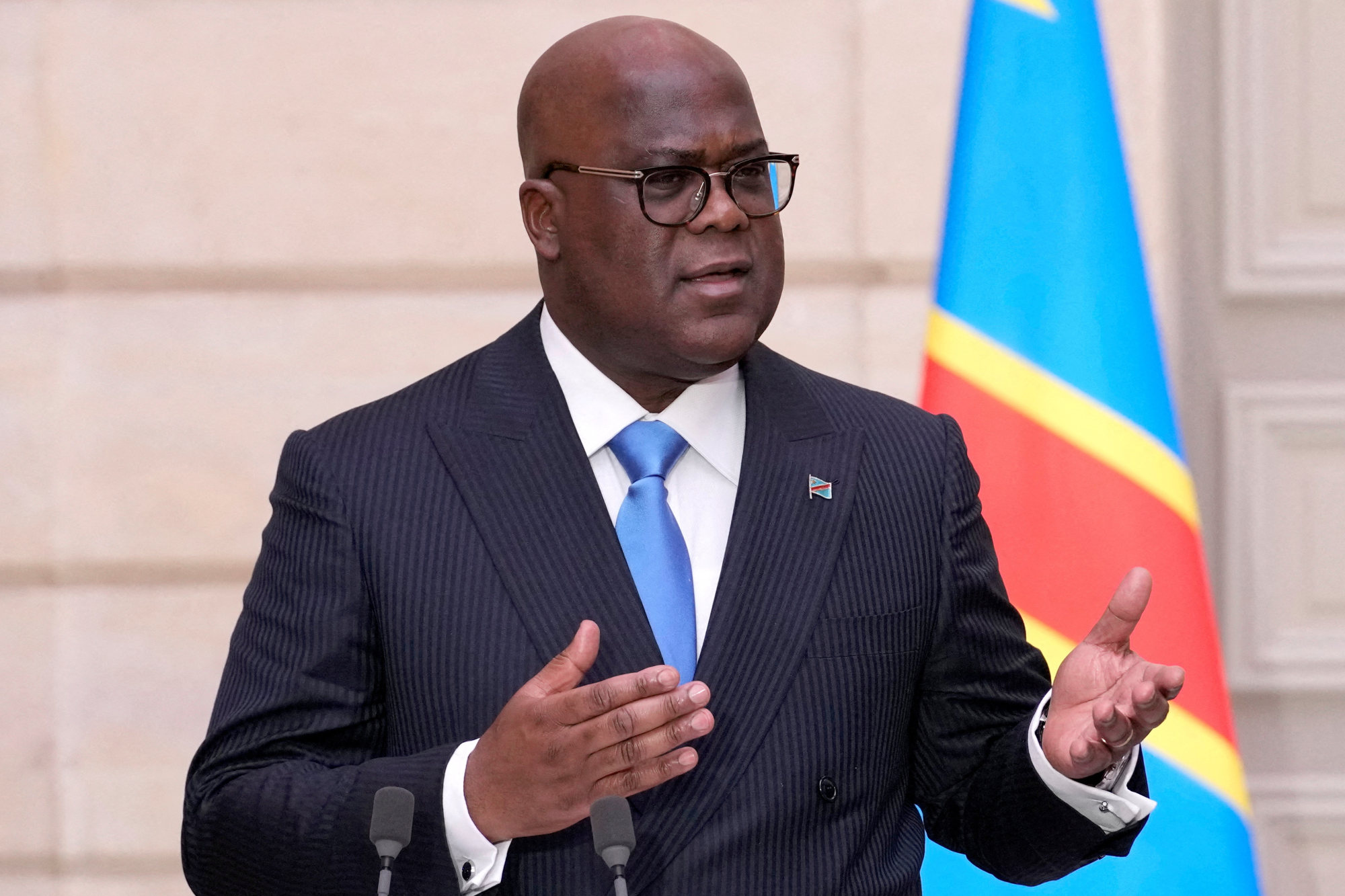
DR Congo thwarts ‘coup attempt’ involving several foreigners
- Several Americans and a British man were part of a group involved in attempted coup, military spokesman says
- Coup bid was led by self-exiled politician Christian Malanga, who was killed by the security forces
The Democratic Republic of Congo’s military said it had thwarted an “attempted coup” near the offices of President Félix Tshisekedi in Kinshasa involving “foreigners and Congolese”.
It happened in the early hours of the morning outside the residence of Economy Minister Vital Kamerhe, in the Gombe area in the north of the capital, near the Palais de la Nation that houses the president’s offices, a spokesman said on Sunday.
“An attempted coup d’etat has been stopped by the defence and security forces,” said General Sylvain Ekenge in a message broadcast on national television.
Shots were also heard near the Palais de la Nation at the time of the coup attempt, according to a number of sources.

Army spokesman General Sylvain Ekenge said several Americans and a British man were part of the group involved in the operation.
The US ambassador to Kinshasa said she was “shocked” by the events while the African Union said it “strongly condemns” the attempted putsch.
The plot was led by Christian Malanga, a Congolese man who was a “naturalised American” and had been “definitively neutralised” – killed – by the security forces, Ekenge said in a broadcast on Sunday evening.
The group was made up of “several nationalities”, Ekenge said, adding that around 40 of the attackers had been arrested, and four – including Malanga – killed.
“We also have a naturalised British subject, the number two of the group,” the spokesman added. Malanga’s son, Marcel Malanga, was also among the attackers, he said.
Kamerhe and his family were not harmed but two police officers looking after them were killed, said a source close to the minister.
The group had planned to attack the home of new Prime Minister Judith Suminwa, and the residence of Defence Minister Jean-Pierre Bemba.
But they “could not identify the home” of Suminwa and had not been able to find Bemba at his residence.

After the attack at Kamerhe’s home, the group then went to the Palais de la Nation, brandishing flags of Zaire, the name of the Democratic Republic of Congo under the dictator Mobutu Sese Seko, who was overthrown in 1997.
“I am shocked by the events this morning and very worried by the reports of American citizens allegedly being involved,” Lucy Tamlyn, the US ambassador to the DRC, posted on X, formerly Twitter.
“Rest assured that we are cooperating with authorities in DRC to the fullest extent possible, as they investigate these criminal acts and hold accountable any American citizen involved.”
African Union Commission chief Moussa Faki Mahamat was following events in the DRC with “great concern” and “strongly condemns” the attempted coup, the AU said in a statement.
France’s ambassador had reported automatic weapon fire in the area, urging nationals to avoid it.
During the day, certain streets near the Palais de la Nation remained closed to traffic, but the situation appeared calm.
Videos on social media showed men in fatigues at the Palais de la Nation, brandishing flags of Zaire.
The Zaire flag was mostly green while the DRC one is largely blue.
“The time has arrived, long live Zaire, long live the children of Mobutu,” a man who appeared to be the head of the group said in Lingala, a language spoken in parts of the DRC.
“Felix has fallen … we are victorious,” he added.
Tshisekedi was re-elected at the end of December when he received more than 70 per cent of votes in the first round.
The parties backing him won around 90 per cent of seats in the parliamentary elections held the same day.
But he is yet to form a government some five months after the elections.
Kamerhe on April 23 was named as a candidate for president of the National Assembly, the DRC’s main legislative body.

.png?itok=arIb17P0)